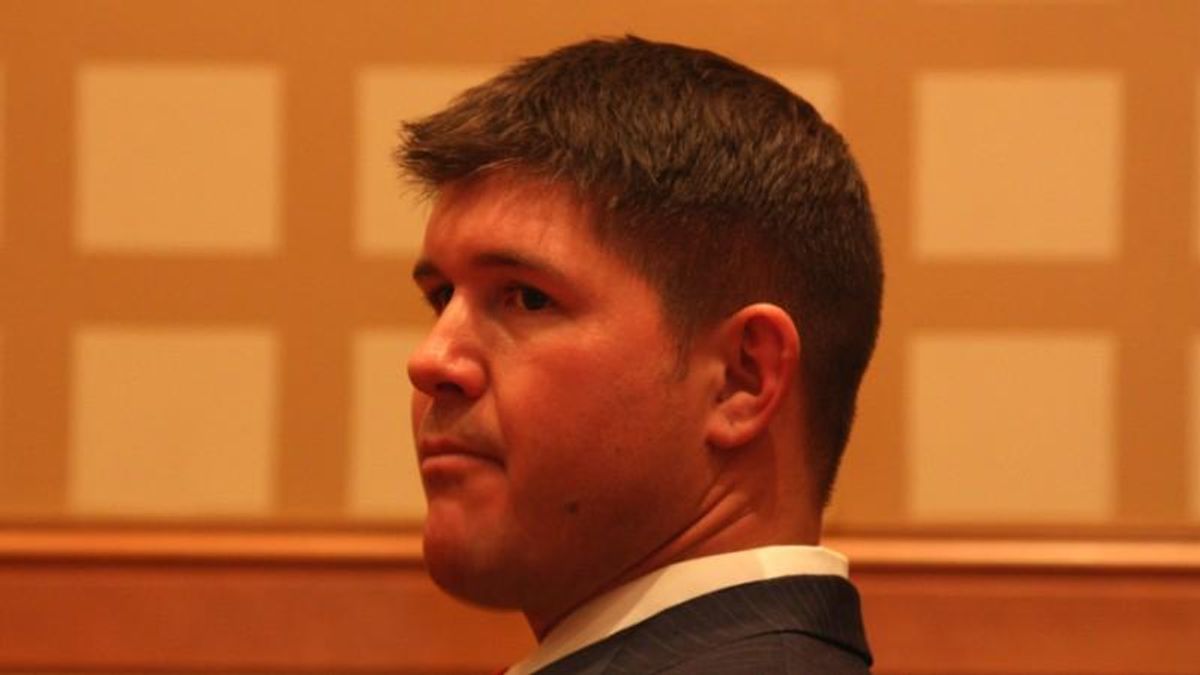
Donald Trump handed out "get out of jail free" cards to some questionable characters as president, but a new court case is testing the limits of those pardons.
A federal appeals court is currently considering whether a pardon Trump gave in 2020 to Republican political operative Jesse Benton should have prevented a jury from hearing about his previous election crimes before convicting him of new ones, and the issue hinges on the unusual manner the former president handed them out, reported The Daily Beast.
Benton is arguing that his pardon "should have made his first scheme essentially vanish," the Beast reported.
“It’s not an exoneration exactly," said David Levine, a professor at the University of California College of the Law San Francisco. "It’s not like wiping a crime off the books entirely. It’s very valuable — as long as you don’t get in trouble again."
American presidents have the authority to reverse convictions or end ongoing criminal cases through pardons, and previous presidents used the Justice Department's Office of the Pardon Attorney, with occasional exceptions, to ensure the process wasn't corrupt.
But the Trump administration rarely went through the proper channel, Levine said.
ALSO READ: 'Unconstitutional overreach': Trump VP contenders clash on Jan. 6
“The pardon office has standards," Levine said. "They would explain why somebody was deserving of a pardon. They would have done a lot of homework and talked to the prosecutor in the case, and they would have the paperwork straight."
Benton's pardon was announced with 29 others, including Paul Manafort and Roger Stone, in a press release issued the day before Christmas Eve in 2020, but a trial judge thought the pardon was not specific enough to wipe his slate clean. The GOP operative's attorneys argued the pardon showed the then-president had concluded he was "innocent because he lacked fair notice and did not willfully violate the law.”
“That’s just a bad reading," said University of Michigan law school professor Richard Primus. "The press release does not support that claim. Any court would recognize it."
Benton had been previously convicted of bribing an Iowa politician to switch his endorsement in 2011 to Ron Paul's long-shot presidential campaign, but four months after that conviction he orchestrated a $100,000 deal that directed money from Russian businessman Roman Vasilenko to the Trump campaign, and he tried to hide the scheme by laundering the money though his own funds.
His appeal could be a preview of cases involving a dozen or more who received Trump pardons only to get in trouble again, and they may all find that hastily issued pardons aren't enough to protect them.
“Historically, presidents haven’t had any requirement that they explain why,” said Mark Osler, who runs the Federal Commutations Clinic at the University of St. Thomas in Minnesota. “That’s why these Trump press releases are kind of remarkable — they’re much more than we usually got. They’d do batches of pardons, list each one, and often would give a reason why.”




